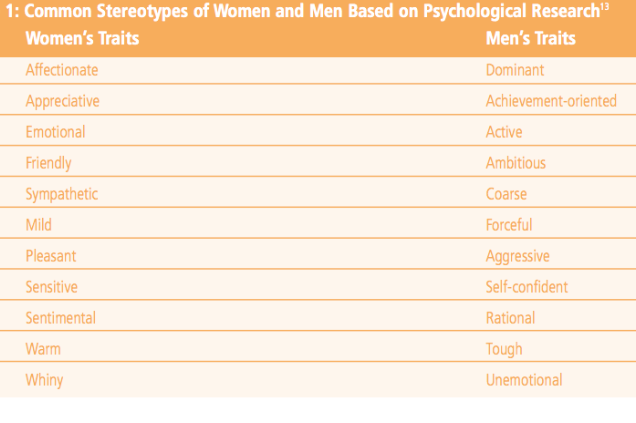Men and Women Communication Skills

By Carmen
For a marriage to succeed, both spouses must hear each other’s differences of opinion on a matter without getting defensive. Set a goal to keep the door open if she or he doesn’t see it your way.
Saving the relationship is worth the effort to continue learning from each other.
Take Care – Take Charge
Women hold an immense amount of emotional power over men. Basically, women look for men’s love, while men look for women’s approval. Not getting it hurts like hell.
Both men and women feel the same desire for love, sex, and connection.
Clear the Path
When the two humans have so much at stake in the relationship, it will include frustration, misunderstanding, confusion, and disappointment.
We also tend to attribute motives to other people that are foreign to our own purposes, which can create a sense of mystery or bewilderment.
Some people can exaggerate their sense of frustration, searching for sympathy. At work, people complain about their problems at home.
And at home, they complain about issues at work.
For men is essential how a woman makes them feel
Numerous general differences characterize gender communication, some basic assumptions:
- Men and women do have different conversational styles.
- Both styles of communication are equally valid.
- The goal in gender communication is not to change the style of communication but to understand and adapt to the differences.
Men use communication to maintain independence, while women talk to maintain intimacy. Whether conscious or unconscious, men often talk to establish status from others. Women use words to connect themselves emotionally, to express feelings, or build rapport. Men often share facts and figures as in a report. Deborah Tannen wrote in her book Women and Men at Work.
Men talk more in public while women talk more in private. This conclusion is evident when the purpose of male and female communication is understood. If men speak to establish status, the most male conversation would inevitably occur in public, at the workplace. On the other hand, if women talk to develop intimacy, the most female conversation would take place in private, at home.
Improving Communication
Become aware of your own communication style. Each person has a unique style of communication. Listen to your own speech. Evaluate your words, your tone of voice, and your body language. Compare your own communication style with that of individuals whom you judge to be effective communicators. Self-evaluation is an essential first step in improving gender communication.
Understand the communication style of the opposite sex. You may be unfamiliar with the unique communication style of the other gender. Listen carefully to the opposite sex around you – your spouse, child, parent, and friends. Make observations in their conversation. Discuss these conversational differences at an appropriate time, not when conflict arises. Try to determine if your perceptions are accurate. Then you are ready to make some changes to communicate more effectively with the opposite sex.
Adjust to those conversational styles. You may think it is impossible to change how you communicate since you have been talking that way for years. Remember that communication is a learned behavior, and behavior can be modified! If you tend to lecture or “report – talk,” maybe you should better listen and discuss feelings, not just facts. If you tend to speak in vague generalities, perhaps you should work on more detailed and specific information in your conversation. If your indirect body language is confusing your verbal message, maybe you should consciously work on gestures that clarify and confirm your words. Both men and women should work on improving their communication.
Alter your conversational style to fit the context. Effective communication is adapted appropriately to fit the setting. Some comments are best made in private, while others can be shared in public. Some statements are appropriate for a group at church, while others should be made to your best friend.
Don’t assume that the opposite sex understands your message. Just because the message is clear to you does not mean that it is clear to the listener. In fact, one of the biggest mistakes in communication is an assumption. It is always best to explain the message thoroughly than run the risk of being misunderstood.
Don’t criticize others who communicate differently. It is a human tendency to think, “my way is the best way.” In the area of communication, remember that different conversational styles are not bad. Different is simply different. Accept the differences and adjust when needed.
How would you describe good or effective communication?
When communicating with others, we often focus on what we should say. However, effective communication is less about talking and more about listening. Listening well means not just understanding the words or the information being communicated, but also understanding the emotions the speaker is trying to convey.
Emotions (anger, fear, sadness) and attitudes (having to be right all the time, believing oneself to be superior or inferior to others) affect objectivity, as do the stereotypical assumptions that people make about each other based on cultural background.

Coping With Stress
Men and women also cope with stress differently; men cope by withdrawing themselves from the conversation or situation while women manage by reaching out and talking about the cause of their stress (John Gray’s popular book Men are from Mars, Women are from Venus)
As John Gray, Deborah Tannen is also famous for her literature on differences in communication styles across gender. In 1990, Tannen wrote the book, You Just Don’t Understand: Women and Men in Conversation to explain the gender differences in communication styles between men and women. She found that these differences across gender start at a young age. Tannen noticed that boys create relationships with each other by doing things together; activities are central to their friendship. Girls, on the other hand, build close relationships with each other by merely talking, “talk is the essence of intimacy.”
Men approach conversations with the goal of transmitting information and offering advice, where women aim to maintain interaction and seek control and understanding. Also describes men as adversarial (having conflicting goals) and women as synergistic (having common goals). While men live in a world of status where conversations are merely negotiations for dominance and power, women live in a world of connections where the purpose of discussions is to negotiate for closeness and preserve intimacy (Tannen, 1990). Karima Merchant

There is one whose rash words are like sword thrusts, but the tongue of the wise brings healing. Proverbs 12:18
Resources
Elign, Suzette Haden. Genderspeak: Men, Women and the Gentle Are of Verbal Self-Defense. New York: John Wiley & Sons, Inc., 1993.
An expert in applied psychology, Suzette Haden Elgin addresses the conflicts which plague the conversations of men and women.
Gray, John. Men are From Mars, Women are From Venus. New York: Harper Collins, 1992.
Pop psychologist John Gray, has written and taught about the differences between men and women. He specifically addresses the different languages spoken by men and women, as if they were two foreign languages.
Tannen, Deborah. Conversational style differences greatly impact the workplace. In her most recent popular release, Deborah Tannen focuses her research in gender communication on the working world context.
Recent posts

Relationships How is Expressed
For men it is how the woman makes him feel, it is different for her

Herman Cornejo
Herman Cornejo Born in the province of San Luis in central Argentina and grew up in Buenos Aires,
Carmen
Spread the word